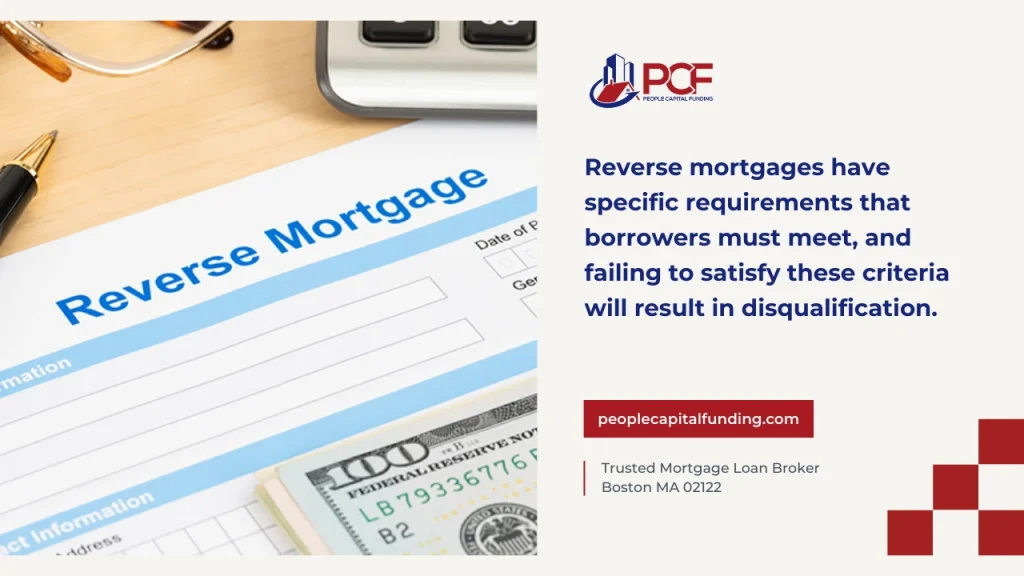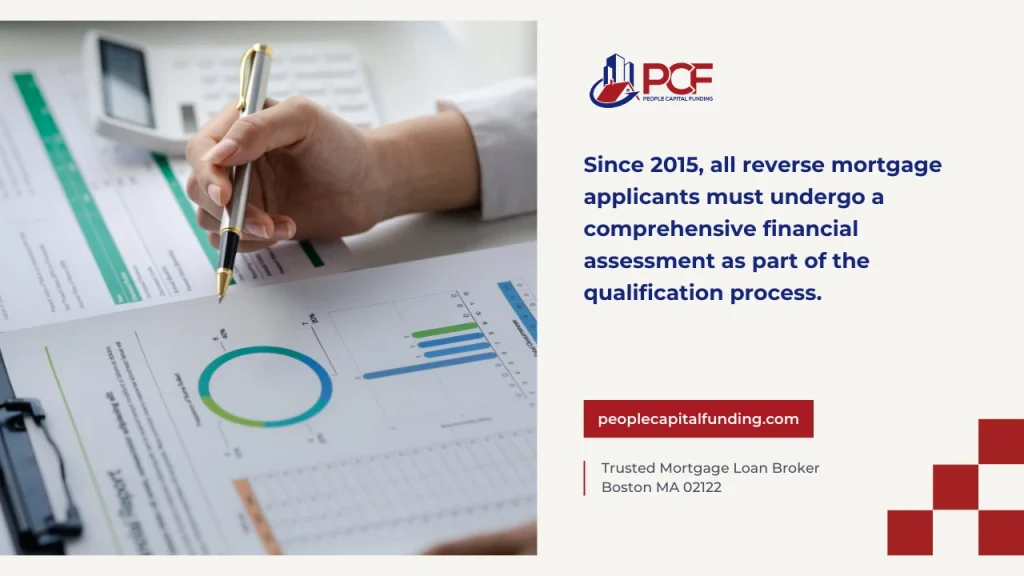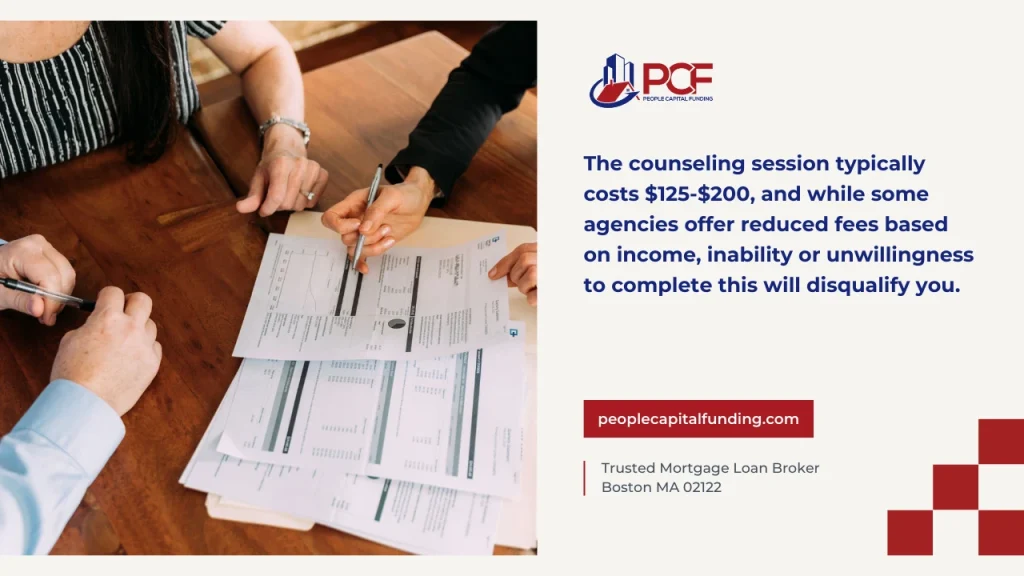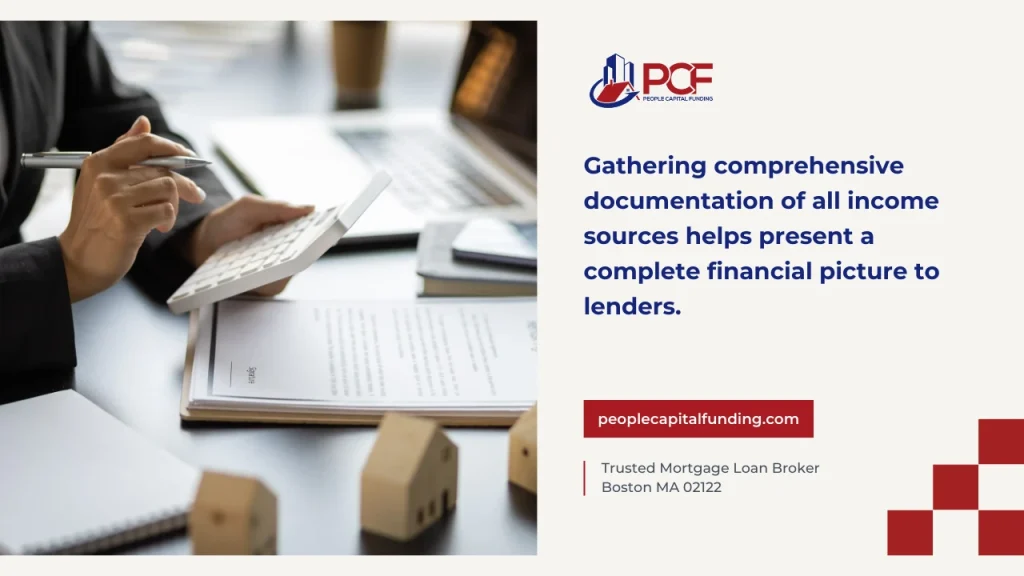
Reverse mortgages have specific requirements that borrowers must meet, and failing to satisfy these criteria will result in disqualification. The 5 main factors that can disqualify you from getting a reverse mortgage include: age restrictions, property eligibility, financial obligations, residence requirements, and counseling non-compliance.
- Age restrictions: The most fundamental requirement for a reverse mortgage is age – all borrowers must be at least 62 years old. This is non-negotiable and serves as an immediate disqualifier for younger homeowners.
- Property eligibility: Not all properties qualify for reverse mortgages. The home must meet certain standards regarding type, condition, and value to be eligible as collateral for the loan.
- Financial obligations: Your financial health plays a significant role in determining eligibility. Issues with existing debts, credit history, and ability to maintain the property can all lead to disqualification.
- Residence requirements: Reverse mortgages are only available for primary residences. If you don’t live in the home as your principal residence, you won’t qualify.
- Counseling non-compliance: All reverse mortgage applicants must complete HUD-approved counseling. Failure to do so will prevent your application from moving forward.

These disqualifying factors exist to protect both lenders and borrowers. For lenders, they mitigate risk, while for borrowers, they help prevent entering into loans that could potentially cause financial hardship.
1. Age-Related Disqualifications
Minimum Age Requirement of 62 Years
The most straightforward disqualifier for a reverse mortgage is age. The Federal Housing Administration (FHA), which insures most reverse mortgages through the Home Equity Conversion Mortgage (HECM) program, requires all borrowers to be at least 62 years old.
If you’re approaching this age but haven’t quite reached it, you’ll need to wait until your 62nd birthday before applying. There are no exceptions to this rule, regardless of how close you might be to the qualifying age.
Implications for Couples with One Spouse Under 62
For married couples where one spouse is under 62, complications arise. Prior to 2014, many couples would remove the younger spouse from the home’s title to qualify for the reverse mortgage. However, this created serious problems when the older spouse passed away, as the younger spouse would need to repay the loan or face foreclosure.
Today, there are protections for non-borrowing spouses, but the couple will still face limitations:
- The loan amount will be calculated based only on the eligible borrower’s age (generally resulting in a smaller available loan)
- The younger spouse won’t have access to any remaining loan proceeds if the borrowing spouse dies
- The younger spouse must establish their legal right to remain in the home if the borrowing spouse dies or moves out permanently
As reported in a 2023 analysis by the Consumer Financial Protection Bureau, age-related complications remain one of the top issues in reverse mortgage complaints.
How Age Affects Loan Amounts and Terms
Even if you meet the minimum age requirement, your specific age impacts how much you can borrow:
- Younger borrowers (in their early 60s) receive lower loan-to-value ratios
- Older borrowers (in their 80s or beyond) qualify for higher percentages of their home equity
- Each additional year of age typically increases the percentage of equity available
This age-based calculation exists because reverse mortgages are based on life expectancy tables – older borrowers are expected to have the loan for a shorter period, reducing risk to lenders.

2. Property Eligibility Issues
Non-Qualifying Property Types
Not all property types qualify for reverse mortgages. Properties that typically don’t qualify include:
- Investment properties
- Second homes or vacation homes
- Most manufactured homes built before June 15, 1976
- Co-ops (though condominiums with FHA approval can qualify)
- Commercial properties or mixed-use properties where less than 51% is residential
- Farms or homes on more than 10 acres
- Boarding houses or bed and breakfasts
Based on data from the U.S. Department of Housing and Urban Development, approximately 20% of reverse mortgage applications are rejected due to property type issues.
Insufficient Home Equity
To qualify for a reverse mortgage, you must have substantial equity in your home. While there’s no specific percentage requirement, you need enough equity to:
- Pay off any existing mortgage with the reverse mortgage proceeds
- Cover closing costs, which typically range from 2-8% of the loan amount
- Have meaningful funds left over to make the loan worthwhile
A helpful rule of thumb is that you typically need at least 50% equity in your home to benefit from a reverse mortgage, though this varies based on your age and current interest rates.
Property Condition Problems
Your home must meet FHA property standards, which means:
- No major structural defects
- Working plumbing, electrical, and heating/cooling systems
- No health or safety hazards
- Adequate access to the property
- No leaking or damaged roof
If an FHA appraisal identifies problems, you’ll need to complete repairs before closing. This can be a major hurdle for seniors on fixed incomes who cannot afford necessary repairs.

HOA and Condo Approval Requirements
For condominiums, the entire complex must be on the FHA’s approved list. According to the National Reverse Mortgage Lenders Association, this requirement disqualifies many otherwise eligible borrowers who live in condos.
The approval process evaluates:
- The percentage of owner-occupied units
- The HOA’s financial stability
- Insurance coverage
- Litigation status
- Commercial space percentage
Property Value Limitations
The FHA places limits on the maximum claim amount for HECM loans. In 2023, this limit was $1,089,300, regardless of the actual value of your home. If your home is worth more, you won’t be able to access the equity above this amount through an FHA-insured reverse mortgage.
| Year | FHA HECM Loan Limit |
|---|---|
| 2021 | $822,375 |
| 2022 | $970,800 |
| 2023 | $1,089,300 |
3. Financial Disqualifications
Existing Mortgage Debt Complications
Having an existing mortgage doesn’t automatically disqualify you, but it does create potential complications. The reverse mortgage must pay off all existing liens on the property, which can be problematic if your current mortgage balance is too high relative to your home’s value. In such cases, you simply may not qualify for a reverse mortgage.
Additionally, you might need to bring cash to closing if the reverse mortgage proceeds aren’t sufficient to pay off existing debts. This requirement often surprises applicants who expect the reverse mortgage to cover all their existing obligations without additional out-of-pocket expenses.
Delinquent Federal Debt
You’ll be disqualified if you have delinquent federal debt, such as:
- Unpaid federal taxes
- FHA-insured mortgage defaults
- Student loan defaults
- SBA loan defaults
From Federal Reserve research data, approximately 13% of seniors have some form of federal debt that could potentially impact their reverse mortgage eligibility.
Income and Credit Score Considerations
Since 2015, all reverse mortgage applicants must undergo a comprehensive financial assessment as part of the qualification process. This evaluation examines your credit history in detail, reviewing your track record with loans and credit accounts.
Lenders also scrutinize your payment history for property charges, looking for consistent and timely payments of taxes and insurance. Your cash flow and residual income receive particular attention to ensure you can maintain your financial obligations after obtaining the reverse mortgage.
While there’s no specific minimum credit score requirement, a poor credit history can trigger additional safeguards like a Life Expectancy Set-Aside (LESA), which reserves part of your loan proceeds to pay future property charges, effectively reducing the amount available to you.

Financial Assessment Failures
The financial assessment evaluates whether you can maintain the obligations of the reverse mortgage, including:
- Property taxes
- Homeowners insurance
- HOA fees
- Home maintenance
If the lender determines you lack sufficient income or resources to meet these obligations, you may be disqualified or required to set aside a substantial portion of your loan proceeds to cover these expenses.
Property Tax and Insurance Payment History
A history of late payments or delinquencies on property taxes or homeowners insurance is a significant red flag for lenders. These issues suggest you might not be able to keep up with required payments, which could eventually lead to default and foreclosure.
4. Primary Residence Requirements
Occupancy Rules and Limitations
To qualify for a reverse mortgage, you must:
- Occupy the home as your principal residence
- Live in the home for more than half the year
- Certify your occupancy annually
If you plan to live elsewhere for the majority of the year, you won’t qualify for a reverse mortgage.
Exceptions for Temporary Absences
The FHA does allow for temporary absences under certain circumstances:
- Medical care (such as a rehabilitation facility or hospital stay)
- Vacation
- Family matters
However, these absences should typically not exceed 12 consecutive months. Longer absences may trigger the loan’s due and payable status.
Consequences of Moving Out of the Home
If you permanently move out of the home, the reverse mortgage becomes due and payable. This includes moves to:
- Another residence
- A family member’s home
- An assisted living facility or nursing home (if the stay exceeds 12 months)
Findings from a study by the American Association of Retired Persons (AARP) reveal that approximately 17% of reverse mortgage defaults occur when borrowers can no longer maintain the home as their primary residence due to health issues.
5. Counseling and Application Process Issues
Mandatory HUD Counseling Requirements
All reverse mortgage applicants must complete counseling with a HUD-approved counselor. This requirement:
- Cannot be waived under any circumstances
- Must be completed before the loan application can proceed
- Results in a certificate that’s valid for 180 days
The counseling session typically costs $125-$200, and while some agencies offer reduced fees based on income, inability or unwillingness to complete this step will disqualify you.
Documentation Problems
Common documentation issues that can delay or derail your application include:
- Missing or expired identification
- Inability to verify income sources
- Title problems or unclear ownership
- Unresolved liens or judgments
- Missing death certificates for deceased spouses who were on the title

Fraud or Misrepresentation Issues
Any misrepresentation on your application can result in immediate disqualification. This includes:
- False statements about age
- Misleading information about occupancy
- Inaccurate financial information
- Attempts to hide existing liens or judgments
Mortgage fraud is a serious offense that can result in both civil and criminal penalties beyond just loan denial.
How to Overcome Common Reverse Mortgage Obstacles
While the disqualification factors may seem daunting, many common obstacles can be addressed with proper planning and proactive measures. The good news is that with some foresight and preparation, you can overcome many of these hurdles.
Working with Smaller Debts
Outstanding debts don’t automatically disqualify you from a reverse mortgage, but they can certainly complicate the process.
Before applying, consider developing a comprehensive plan to tackle high-interest debts first, as these typically cause the most financial strain. Many successful applicants have used a portion of their reverse mortgage proceeds to eliminate existing debt, which can improve cash flow significantly after closing.
Prioritize addressing these debt-related issues before applying:
- Federal tax liens or delinquent property taxes
- Defaulted federal student loans
- Recent collections or charge-offs that appear on credit reports
For those with tax debts or federal obligations, establishing a formal payment plan with the relevant agencies can demonstrate financial responsibility to lenders. This approach shows you’re actively addressing your obligations rather than ignoring them.
Additionally, working with a financial counselor who understands the nuances of reverse mortgages can provide personalized strategies to improve your overall financial picture. Many counselors can identify debt reduction approaches you might have overlooked.

Improving Property Condition
Property condition issues represent one of the most common yet solvable obstacles to reverse mortgage approval. If your home doesn’t meet FHA standards, focus on making essential repairs before the appraisal takes place. Start with safety and structural issues, as these are primary concerns for FHA inspectors. Items like loose handrails, leaking roofs, or electrical hazards should be addressed immediately.
For more extensive repairs, you might consider a short-term home improvement loan to fund the necessary work. This investment often pays off, as it not only helps with reverse mortgage qualification but potentially increases your home’s appraised value.
Even addressing obvious maintenance issues like peeling paint, broken windows, or damaged flooring can make a significant difference in both the appraisal and the inspector’s assessment. The cost of these improvements is typically far less than the potential benefit of reverse mortgage approval.
Adding a Non-Borrowing Spouse
When one spouse is under 62, navigating the reverse mortgage process requires special consideration. Recent regulatory changes have improved protections for non-borrowing spouses, but it’s crucial to understand these protections thoroughly. The loan amount will be calculated based solely on the eligible borrower’s age, which typically results in a lower available amount than if both spouses qualified.
Both spouses should attend counseling sessions together, even if only one will be a borrower on the loan. This ensures both parties fully understand the implications and responsibilities. Perhaps most importantly, couples should have detailed discussions about what happens when the borrowing spouse dies or leaves the home permanently. While this arrangement isn’t ideal, it can provide access to needed home equity while offering some protection to the younger spouse against immediate displacement.
Financial Planning Strategies
Successfully qualifying for a reverse mortgage often requires demonstrating sound financial management. Creating a detailed budget that clearly shows your ability to pay ongoing property charges is an excellent starting point. This budget should account for property taxes, insurance, maintenance costs, and any HOA fees that will continue after the reverse mortgage begins.
Some applicants find it helpful to set aside dedicated funds for future property taxes and insurance, showing lenders they’ve planned for these ongoing obligations. If time permits, taking steps to improve your credit score through consistent on-time payments and reducing credit utilization can strengthen your application considerably. For those with federal debt issues, addressing these before applying is almost always necessary for approval.
Most successful reverse mortgage applicants prepare these key financial documents ahead of time:
- Recent tax returns (typically last 2-3 years)
- Bank statements showing adequate resources for property charges
- Statements from all income sources including Social Security award letters
- Documentation of any payment plans for existing debts
Gathering comprehensive documentation of all income sources – including Social Security, pensions, investments, and any part-time work – helps present a complete financial picture to lenders. A financial advisor with reverse mortgage expertise can help you assemble this information effectively and develop strategies tailored to your specific situation. People often work with advisors for several months before applying, giving themselves time to implement recommended changes.

Alternatives If You Don’t Qualify for a Reverse Mortgage
If you find yourself disqualified from obtaining a reverse mortgage, several alternative options exist. The table below outlines these alternatives and their key features:
| Alternative | Key Features | Best For | Considerations |
|---|---|---|---|
| Home Equity Loans | Fixed amount, fixed term, fixed interest rate | Homeowners needing a lump sum | Requires monthly payments and income verification |
| Home Equity Lines of Credit (HELOCs) | Flexible access during draw period, variable rates | Those who need occasional access to funds | Interest rates may increase over time |
| Refinancing | Can lower monthly payments, shorten loan term, or provide cash-out option | Homeowners with high interest rates on existing mortgages | Requires closing costs and income qualification |
| Downsizing | Selling current home to buy less expensive property | Seniors with high-value homes and maintenance challenges | Involves moving costs and potential lifestyle adjustment |
| Government Assistance | Property tax relief, utility assistance, home repair grants, SSI, Medicaid services | Low-income seniors | Program availability varies by location and income level |
| Family Financing | Family loans, sale-leaseback with children, shared equity agreements, life estates | Those with supportive family members willing to help | Requires proper documentation and clear agreements |
Each alternative has distinct advantages and requirements, making some options more suitable than others depending on your specific circumstances.
Conclusion
The reverse mortgage qualification process involves multiple variables that can be difficult to manage without assistance. At People Capital Funding, our experienced team specializes in helping seniors understand their options, providing preliminary eligibility assessments, and identifying potential disqualifiers before you begin the application process.
We offer free, no-obligation consultations to evaluate your specific situation and provide personalized guidance. Whether you need help overcoming obstacles to qualification or exploring alternatives, our mortgage specialists are ready to assist you.
